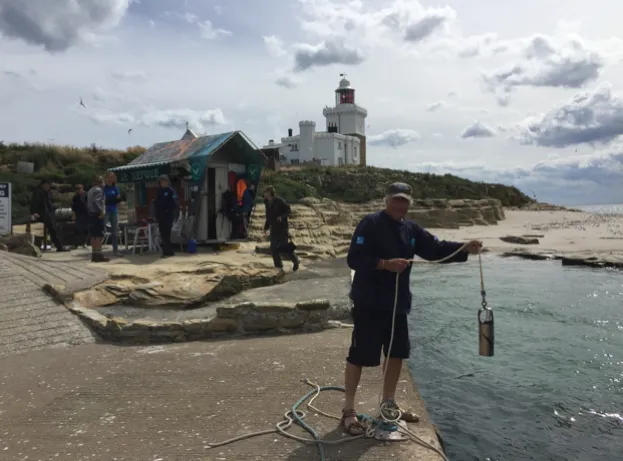A seabird that almost vanished as a UK breeding species has had a triumphant year at its only regular breeding colony.
In the 1970s, there were just 16 pairs of roseate terns on Coquet Island but this year there were 118 pairs, following the installation of 200 new nest boxes over the last three years.
"For the past three years we've been consistently attracting more than a 100 pairs of roseate terns to the Island, who have fledged more than a 100 chicks each year," says Paul Morrison, RSPB warden at Coquet Island.
"This is paving the way to building a larger breeding population, which will soon reach a point where birds are beginning to nest in places beyond Coquet Island. Ultimately, we'd love to see roseate terns that have been raised here, establishing new colonies around the UK."
Roseate terns prefer to nest in crevices and small holes, unlike other tern species. In order to encourage birds to breed, the RSPB introduced terrace housing which provided 200 new nest boxes for them.
The RSPB also installed a new hide, and live camera feeds in some nest boxes, to allow wardens to monitor the nests and the behaviours of the birds.

Roseate terns were once widespread across the UK, but nearly became extinct in the 19th century as their plumage was sought after for hats.
Even once this danger had passed, the species then faced a range of other threats including predation, food shortages and eroding habitats.
"RSPB Coquet Island is the UK's sole roseate tern colony and reaching 118 pairs for the first time since 1970 is fantastic news," says Daniel Piec, manager of the Roseate Tern LIFE Recover Project.
"The work undertaken through the RPSB with added support from LIFE project has been essential in saving this rare bird from extinction in the UK and giving them a rosy outlook for the future."
The success of the follows the recent news of roseate terns fledging chicks on The Skerries, off Anglesey, for the first time in more than a decade.
